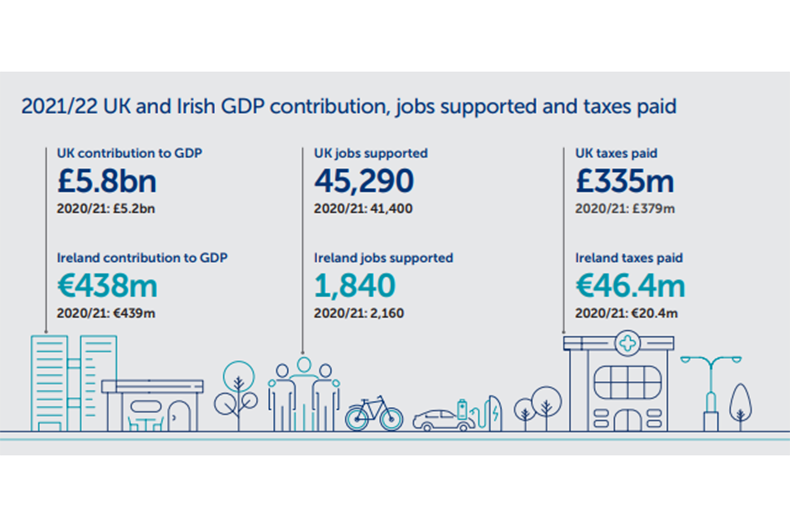Social
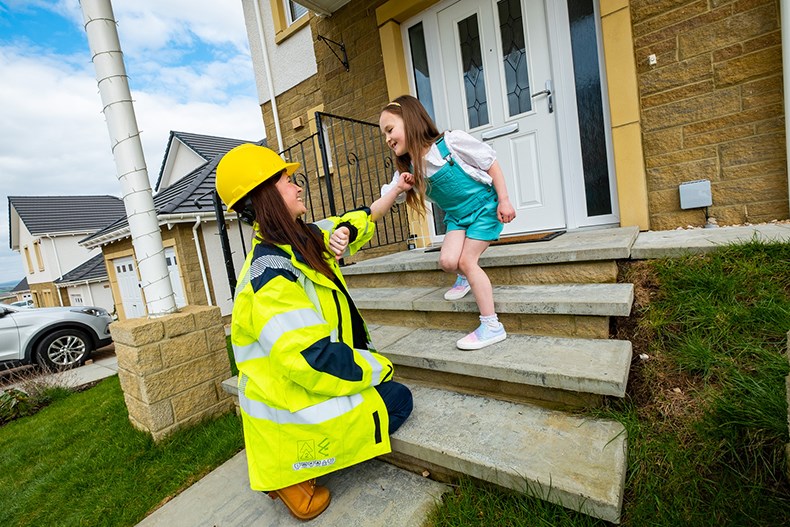
Our activities have an impact on people, whether its energy customers, those who work for us or those who live in the communities in which we operate. In recognition that SSE has a deeply interconnected relationship with the society we rely on to operate and make a profit, we aim to conduct our business in a way that contributes positively and shares value. This means creating a fair and inclusive place to work and giving back to our local communities.
Ensuring a Just Transition to net zero
Change of the scale and nature needed to achieve net zero brings social consequences, impacting people – employees, consumers, communities, suppliers, and wider society – in many different ways.
SSE has a responsibility to influence those impacts as it transitions out of high-carbon activities while seizing the opportunities to increase value and share economic prosperity from the transition into a net zero world.
We have an ambitious £20.5bn capital investment plan to accelerate progress towards net zero over the five years up to 2027, the majority of which will go to low-carbon infrastructure. A just transition to net zero will mean that the actions and investments required to decarbonise energy systems attract long-term public support and legitimacy.
In November 2020, we became the first company to publish a Just Transition Strategy. It includes a framework of 20 principles to guide how we influence greater fairness for those impacted by the decline of high carbon economic activity.
In September 2021, SSE published a new report focused on moving from principles to action to support workers transition from high to low-carbon careers. The report outlines 20 commitments from SSE, 10 recommendations for industry and 10 recommendations for government.
SSE then published a progress report in 2023 detailing action since 2020, and in 2024 reviewed the Just Transition Strategy, publishing an updated one here.

Employees
A primary social impact of any company is made through the people it employs. SSE has a long-standing commitment to fair and decent work for the people that work for our company, whether that’s directly or on our behalf.
Guaranteeing standards: a real Living Wage and Living Hours
We have been a Living Wage accredited employer in the UK since 2013 and paid the Living Wage in Ireland since 2016, with “Champion the real Living Wage” as one of our 2030 Goals. In late 2021, we gained accreditation as a Living Hours employer too.
Living Hours is a new accreditation from the Living Wage Foundation in the UK which recognises that people cannot earn a real Living Wage unless fair wages are also accompanied by secure and sufficient hours of work. We are working to roll this initiative out across our UK supply chain, as we have done with the Living Wage since 2014.
Inclusion & Diversity
We want SSE to be welcoming to all employees and to have a workplace culture that is inclusive to everyone. To embed inclusion an diversity across the business SSE has an Inclusion and Diversity Strategy, focused on four areas: Ambition; Education and Development; Inclusive Processes; and Employee Voice. The strategy builds on SSE’s IN, ON, UP initiatives that have run since 2014 to bring diversity in to SSE, create an environment where everyone wants to stay on at SSE, and provides equal opportunities to progress and move up in the business.
Inclusion and Diversity Report 2024
Reflecting its increased strategic focus on driving greater inclusion and diversity across the business and supply chain, SSE annually publishes a comprehensive Inclusion and Diversity Report, providing detailed information on SSE’s Inclusion and Diversity Strategy, progress made, and key performance indicators. Transparent reporting is a key component of improving inclusion and diversity and allows SSE to share learnings, as well as gain feedback from key stakeholders. You can read the SSE’s Inclusion and Diversity Report 2024 here .
Taking care of physical and mental health
SSE’s message to all employees is “If it’s not safe, we don’t do it”, with the key aim that everyone who works for or on behalf of SSE gets home safe each day. We have emphasised the importance of parity of focus between mental and physical health, with initiatives including Mental Health First Aiders, employee assistance counselling, additional counselling through a partnership with Nuffield Health, and access to a range of wellbeing programmes, as well as muscular-skeletal treatments, a range of subsidised and participatory physical exercise programmes, and a number of initiatives to help support colleagues experiencing stress.
Providing employee benefits
SSE provides employees with a wide range of benefits, detailed on careers.sse.com/employee-benefits. This includes flexible working arrangements, market-leading maternity benefits, all-employee share plans, a holiday purchase scheme, cycle-to-work schemes and technology loans.
Training and Skills
The energy sector faces the challenge of maintaining traditional skills and capabilities, whilst also developing those needed for the transformation to net zero. To achieve this, we have developed training plans aligned to strategic objectives. We invest in internal and external learning and development activities, and support people in early career programmes, including apprenticeships, Technical Skills Trainees, graduates and employability programmes.
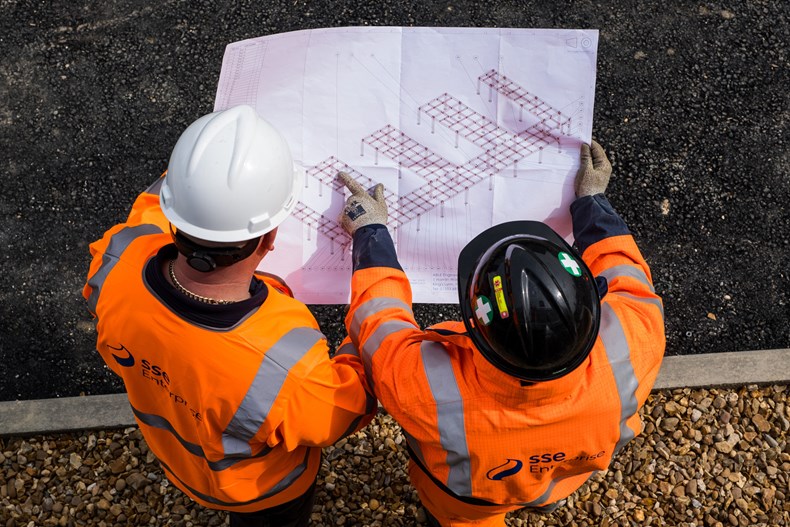 Consumers
Consumers
The provision of energy to homes and businesses across GB and the island of Ireland is an essential service, and SSE’s businesses can do much to deliver value for consumers. For more information on our customer businesses please see Airtricity and SSE Energy Solutions.
We build relationships with customers by both supplying and distributing energy. While the relationship between SSE’s electricity generation businesses and our Transmission business might be less direct, the interests of the end user is key.
From driving down the costs of generating electricity from renewables, the careful balancing of consumer interests in the Transmission business plan to the creation of local flexible electricity grids that engage all users, we help to deliver value for energy consumers in many different ways.
Our approach to consumer vulnerability is focused on helping to reduce fuel poverty and ensuring an inclusive and accessible transition to net zero. For more information on how SSE supports customers please see the latest Sustainability Report.
We have developed a two-tiered approach for ensuring customers at risk of fuel poverty access the support they need. Firstly, referrals to key services are given to customers we already engage with.
We train customer teams on fuel poverty, enabling them to spot the signs of someone who may need help, and to know how to refer people for specialist, independent advice and support.
The Priority Services Register (PSR) provides support services to those most vulnerable to being impacted by energy issues. Services include providing solutions for those who find meter reading inaccessible, providing priority help in the event of a power cut for those who rely on electrical medical equipment, providing communications in alternative languages, and many more. For more information on the PSR, click here.
The energy industry is undergoing a significant period of change which will impact the lives of all energy consumers.
We are committed to ensuring that no one is left behind in the transition to net zero by embedding fairness and inclusivity with consumers and communities in mind, and ensuring opportunities for all to benefit from the transition are built into projects.
Our projects address issues beyond the energy industry and strive to address social issues by providing lasting community benefit. We are continuing to focus on making electric vehicles (EVs) accessible to all and ensuring the smart grid of the future benefits everyone.
For more information on EVs and smart grids, read the latest Sustainability Report.
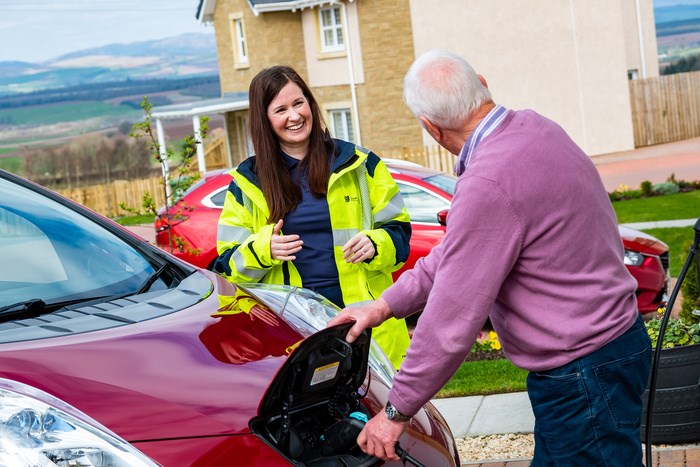 Communities
Communities
SSE’s long-standing approach to community engagement and investment has enabled us to build strong relationships with communities in the areas where we operate.
Funding community projects
The principle of sharing the economic value of renewables projects with local communities is one we have been committed to since 2008.
SSE Renewables’ community investment funds provide an important source of funding to communities close to assets, many of which are in rural areas across the UK and Ireland. Total fund payments between 2008 and 2050 are expected to be at least £250m, adjusted for inflation. This includes the Viking wind farm fund, with expected payments to the Shetland community over the lifetime of the wind farm totalling £70m (nominal) – the largest UK community fund linked to renewable energy. For more information, visit the Communities pages on the SSE Renewables website.
SSEN Distribution operates the Resilient Communities Fund (RCF) which helps communities to build resilience for emergency events and protect the welfare of vulnerable community members in SSEN’s electricity distribution network areas in central southern England and the North of Scotland. For more information, visit the Resilient Communities Fund pages on the SSEN website.
Responsible developer principles
The successful development of our major infrastructure projects requires good community relationships with the people who live near our projects. Our approach to community liaison has been built over the past decade. For more information on how we effectively work with stakeholders in the community please see our latest Sustainability Report.

Photo: Gordonbush – Investing in walking routes in the Highlands, Scotland
Suppliers
SSE depends upon a sustainable, vibrant and varied supply chain to deliver our business strategy. Ensuring that our standards and values are supported and upheld by suppliers and contractors is central to the social impact SSE makes.
Following an independent gap analysis against the ISO 20400 standard by supply chain experts Action Sustainability in 2020, we developed a three-part plan designed to advance our approach to sustainable procurement to a mature state. Detail of SSE's approach to sustainable procurement can be found in the latest Sustainability Report.
We are also a partner of the Supply Chain Sustainability School which provides our supply chain with access high-quality training, wider resources and networks focused on sustainability. Read more here.
Modern slavery in any form is unacceptable in any circumstances. We undertake steps to mitigate the risk of modern slavery in our direct and supply chain operations, and have worked with human rights experts Stronger Together to understand how to progress our approach further.
We are implementing our Modern Slavery Action Plan for 2021- 23, focused on five key areas of focus: Tier 1 and beyond; Due diligence; Awareness and education; Response and doing the right thing; and Messaging and comms.
This Action Plan is underpinned by robust governance, with the SSE Human Rights Steering Group reporting directly to the Group Risk Committee, as well as to the Group Executive Committee and to the Board annually. Detail on our approach and actions taken each year can be found in our annual Modern Slavery Statement and in our Group Human Rights Policy.
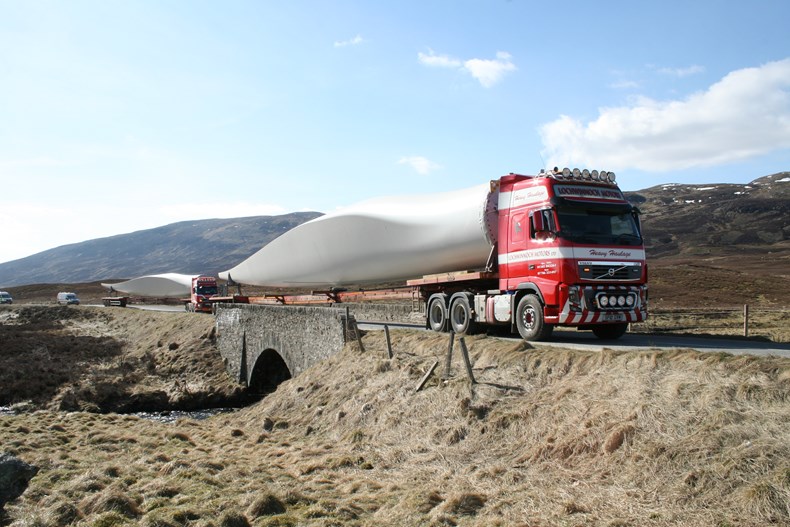 Wider societal impact
Wider societal impact
The way that SSE invests in the decarbonisation of the UK and Irish economies contributes to society by adding economic value, supporting jobs and contributing to the public purse through tax revenues. SSE calculates and publishes its economic contribution (in terms of GDP and jobs supported) to the UK, Scotland and Ireland each year, and provides open and detailed disclosure on its tax affairs. Since 2014, SSE has been accredited with the Fair Tax Mark, an independent standard for tax fairness and transparency. Read out latest Talking Tax annual report here.
